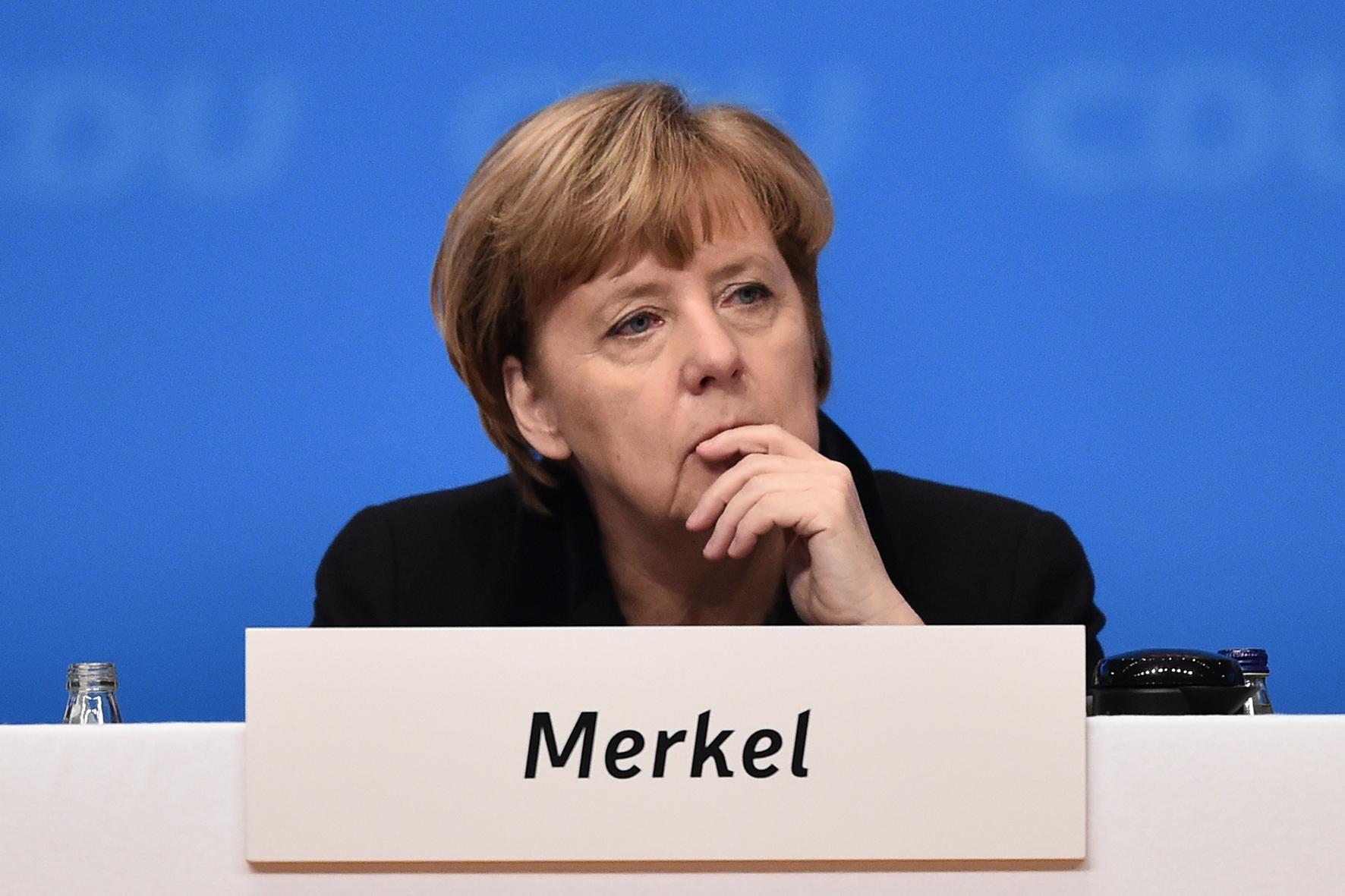Angela will run for a fourth term
The “girl that came in from the Cold” was elected for the first time as CDU leader in 2000. Her famous phrase: “We have returned” was an acknowledgment as well as the outline of a political program. Already then it was clear that she intended to lead the Country – and the EU – for many years, and despite countless difficulties. She didn’t hesitate to change allies on various occasions to preserve her post in the government, up to the present “grosse koalition”. Now she’s preparing to face the populist challenge.

Extraordinary Congress of the Christian-Democrat Congress in Essen, year 2000: Angela Merkel is elected President of the Party (the first woman to hold that office in the CDU) looking for new leaders and new strategies, with 96% of the vote. She delivered a 75-minute speech marked by the phrase: “We have returned”, which was welcomed with a ten-minute standing ovation by all 1000 delegates present, shouting “Anghéla, Anghéla”. The “girl that came in from the Cold” – perhaps not exactly a ‘girl’, for at the time she was 45 – kept her promise, although it took her some time. On the eve of the new millennium, after the praiseworthy operation that had led to Germany’s unification ten years before, she was overcome by a bribery scandal that involved renowned reunification chancellor Helmut Kohl, accused of having received two billion deutschmarks. At the same time it was discovered that CDU chief Wolfgang Schaeuble received a payment of 100,000 deutschmarks from an arms dealer, while ex Interior Ministry Manfred Kanther – with a reputation of being a “tough” guy – was revealed to be involved in a 17 billion transfer to Swizerland, and an arrest warrant was issued for Walter Leisler Kiep, the former treasurer of the CDU, charged with concealed accounts, that involved the suicide of a high-ranking officer. Furthermore, several politicians were found guilty of bribery. The CDU went through ninety dramatic days, having lost the trust of a quarter of its voters, and having been defeated in some of its electoral feuds. More failures were on the horizon: as in 2002, when, on the wake of the scandals, candidate-chancellor Edmund Stoiber, leader of Bavaria’s CSU, was defeated, and SPD was favoured for several years.
But in the meantime Angela Merkel made a clean sweep inside the Party
dismissing Kohl, who had been her political sponsor: he was even stripped of CDU’s honorary presidency for refusing to reveal the identity of the person who financed him. At the same time the Party’s leadership was renewed, notably by promoting the female presence and giving a stronger voice to the young members who had been criticizing the excessive amount of power and control over the CDU and the government exerted by Kohl’s faithful supporters. The Chancellor “with a sad smile” – bound to experience one of her few moments of amusement in an ironic comment on Silvio Berlusconi shared with the then French President Nicolas Sarkozy – slowly but determinedly climbed the slope after having “burned out” Stoiber, narrowly defeated in the 2002 election against Gerhard Schroeder who was already loosing terrain. Since then, the Social Democrats experienced over ten defeats in regional elections, making it necessary to hold early elections (a rare event in Germany) in 2005, when CDU recovered its position as the first national Party, but lacking the votes to rule without allies. Merkel realistically acknowledged that there we no other feasible options, and after three weeks of intensive negotiations she formed a government with CSU, SPD and the Greens. She became Chancellor, the first woman chancellor in Federal Germany. Since then things proceeded rather smoothly. Angela Merkel managed to strengthen new elements, she innovated political action, and, most importantly, she enhanced the positive contribution of Social Democrats in the government, adopting provisions to the benefit of the realms of labour and welfare. She acted skilfully in foreign politics, drawing all the benefits (eventually denied to others) of European regulations; but also – it should be recognized – displaying a special capacity in handling the refugee issue, unlike most EU countries.
Her ability to adapt to new situations has turned Angela Merkel into a major player on the world stage.
Nobody dared rebuke her for waltzing in various government alliances after the 2009 and 2013 elections. In 2009 she “dumped” the socialist losers and took the liberals on board, without making substantial changes to government directives. In 2013 she took stock of the elimination of the Liberals from the political scenario and set up a great coalition (“grosse koalition”) with the Socialists, which, in turn, is bringing the latter to a crisis. In all likelihood the next battle – as she said announcing her intention to run as Chancellor in 2017 – “will be difficult at a difficult moment in time.” She will have to confront the insidious resurgence of nationalism, the anti-Europeanism that is worming its way through, the fears of terror, and the lack of solidarity. The moderate fringes of the population see Merkel as a guarantee. She has tough months ahead of her. But perhaps the famous phrase welcomed with a standing ovation by party delegates: “We have returned” – namely, we’re still here – could continue being true.